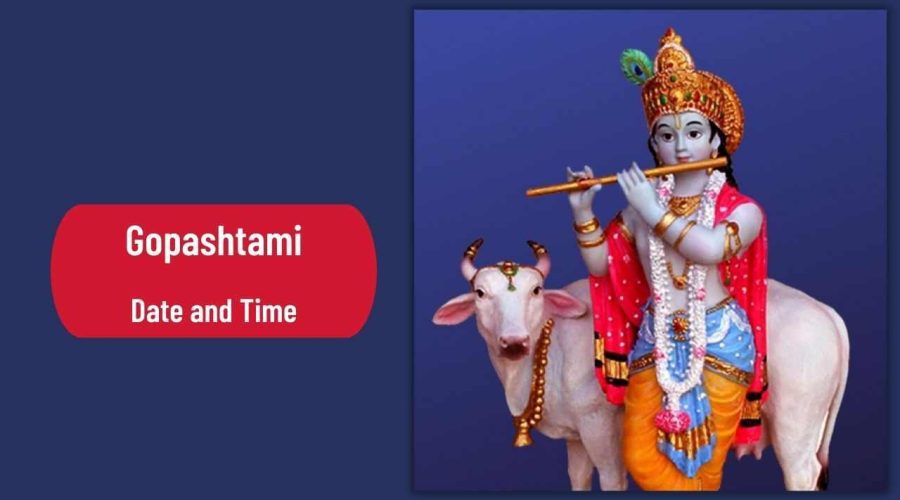Gopashtami 2023: Date, Time, Story, Importance and Celebrations
On the eighth day of the Shukla Paksha in the month of Kartik, Gopashtami is observed. It is a holiday where people worship and pray to cows. On this day, people honour cow riches (Godhan) and express their thanks and admiration for cows, which are revered as the source of all life. Cows are revered as goddesses and are known as “Gau Mata” in Hindu tradition. The Govatsa Dwadashi festival, which is observed in parts of Maharashtra, is comparable to the tradition of making prayers and worshipping calves and cows.
Gopashtami Date 2023
Monday, 20 November 2023
Rituals and Celebration of Gopashtami
- On the eve of Gopashtami, devotees rise early in the morning to clean the cows and bathe.
- On this day, Hindus perform prayers and adore the calf and the cows together.
- Water, rice, garments, scent, jaggery, rangoli, flowers, sweets, and incense sticks are used to worship cows.
- Priests perform special pujas for Gopashtami at various locations.
Story of Gopashtami
There are various stories related with the Gopashtami feast. Cows are regarded the most precious to Lord Krishna, according to Hindu texts. According to legend, Gopashtami was the day when Nand Maharaj dispatched Lord Krishna and Lord Balaram for the first time to herd the cows as they both entered the Pauganda age, which is between the ages of 6 and 10 years. As a result, as of that day, they were both in charge of herding the cows.
According to tradition, Lord Indra wished to show off his strength to all the inhabitants of Vrindavan because of his ego. As a result, he resolved to flood the entire region of Brij in order for the people to bow in front of the deity, resulting in seven days of tremendous rainfall.
Lord Krishna recognised the region and its people were in danger, so he hoisted the Govardhan Parvat on his little finger to provide refuge for all beings. Lord Indra realised his error on the seventh day, and the rains stopped. He begged Lord Krishna’s forgiveness. Surbhi cow showered milk on Lord Indra and Lord Krishna, declaring Lord Krishna to be Govinda, the Lord of cows. Though the eighth day is known as Ashtami, that particular day is known as Gopashtami.
Gopashtami Significance
Hindu religion and culture are said to have cows as their soul. They are revered as Hindu gods because they are thought to be pure. According to Hindu mythology, the various deities, goddesses, and gods are thought to reside inside a cow, and as a result, they hold a special place in the Hindu religion.
They are seen as another manifestation of Goddess Earth and are thought to possess spiritual and divine attributes. According to Hindu mythology, those who worship cows on the eve of Gopashtami are granted happiness and good fortune. Additionally, it aids followers in fulfilling their aspirations.

